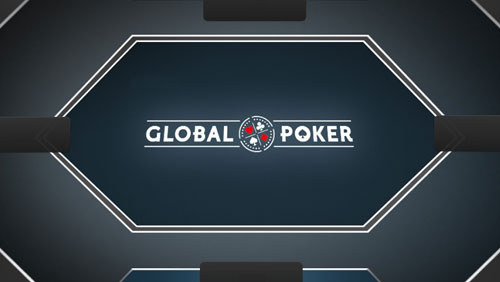U.S.-facing online poker site Global Poker saw its Rattlesnake Open kick off just over a week ago, and the response has been much better than expected. If things continue at the current pace, the 135-event series will end up paying out double the advertised guarantee of $1.25 million.
 A $5,000 freeroll got things started last Sunday, and saw 3,132 players take to the virtual felt. All events across the first four days exceeded their guarantees—some by a little, others by more than double. The $110 6-Max tournament on Monday night had a $10,000 guarantee, but by the time it was all set up, the guarantee had been pushed to over $22,000.
A $5,000 freeroll got things started last Sunday, and saw 3,132 players take to the virtual felt. All events across the first four days exceeded their guarantees—some by a little, others by more than double. The $110 6-Max tournament on Monday night had a $10,000 guarantee, but by the time it was all set up, the guarantee had been pushed to over $22,000.
The series offers tournaments for any budget and any taste—No-Limit Hold’Em (NLHE), Pot-Limit Omaha and Fixed-Limit Hold’em. Buy-ins range from $3.30 up to $218 and there will be three NLHE Main Event tournaments on May 20, starting with a $22 buy-in $15,000-guarantee tournament. There will also be a $110 buy-in tournament with a $40,000 guarantee and a $218 tourney with a guaranteed prize pool of $100,000. Several satellite tournaments are being offered for as low as $0.55 to try for a place in the $100,000 Main Event.
In addition to the cash prizes, winners also receive a Rattlesnake trophy and a Global Poker Champions pack. The pack can typically include GP-branded items such as t-shirts and baseball caps.
For GP, all money is discussed in terms of “Sweeps Cash.” Since online poker is still illegal virtually everywhere in the U.S., GP took a unique approach to be able to award real money in tournaments. Registered users purchase a virtual currency, a Gold Coin (GC), through PayPal. GCs can be used for ring games, sit-n-gos and tournaments. With the GCs, Sweeps Cash is automatically awarded, and this cash is used for GP’s Sweeps Cash tournaments. As opposed to earnings from the GC coins, any money won through the Sweeps Cash tournaments can be exchanged for cash through PayPal.
Given the current online gambling environment in the U.S., GP is treading lightly. Following a recent ruling by the Ninth Circuit Court Of Appeals that determined that virtual chips are a form of gambling in the state of Washington, it’s possible that GP’s model could, too, fall under the same definition. On the other hand, recent online poker joint-ventures by several states is challenging the federal doctrine that gambling is bad, and could pave the way for a wider acceptance of online gambling activity.





